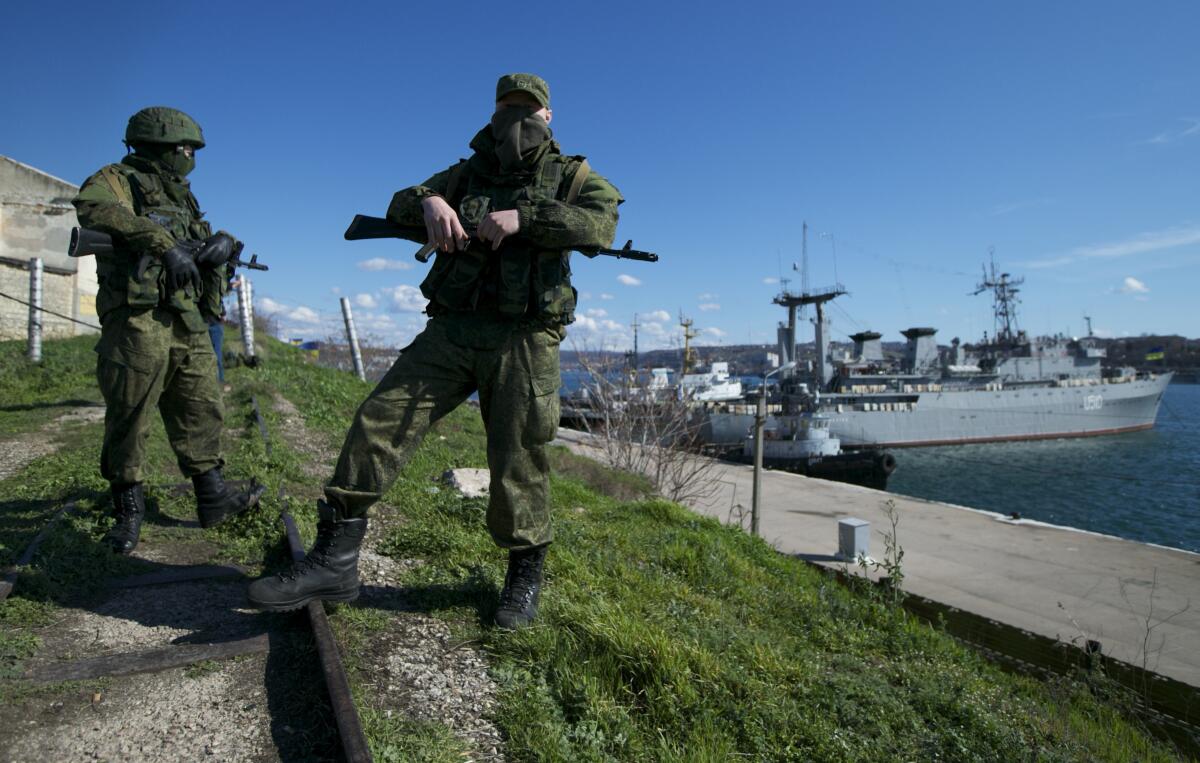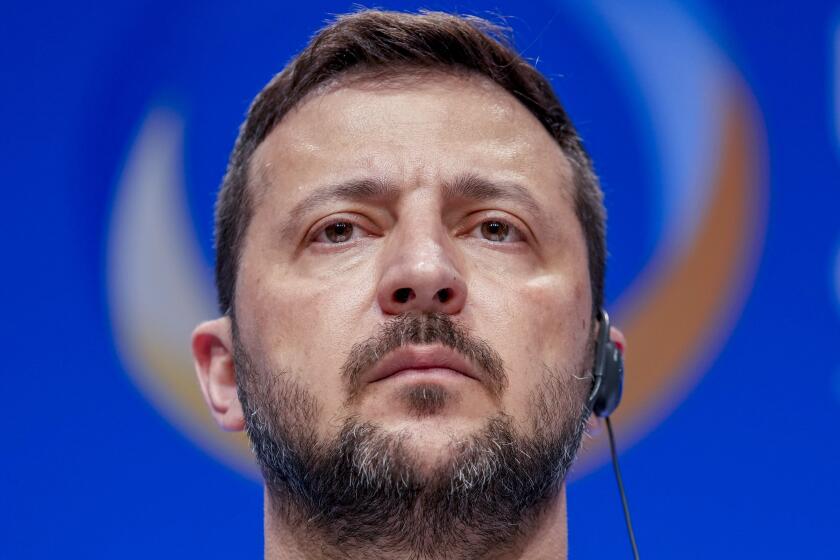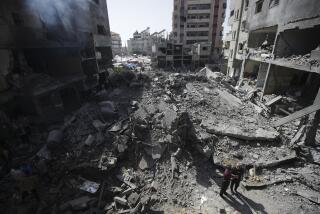Top European human rights court cites Russia violations in Crimea

- Share via
THE HAGUE, Netherlands — Europe’s top human rights court has ruled that Russia was responsible for a string of human rights violations in Crimea since overrunning and later illegally annexing the Black Sea peninsula in 2014.
The European Court of Human Rights said in a lengthy written judgment this week that Moscow was responsible for rights violations including reining in freedom of expression, religion and assembly.
Russia also breached international humanitarian law by imposing its laws on the occupied peninsula, the Strasbourg, France-based court ruled.
The court said there was “a pattern of retaliatory prosecution and misuse of criminal law and a general crackdown on political opposition to Russian policies in Crimea, which had been developed and publicly promoted by prominent representatives of the Russian authorities.”
Ukrainian President Zelensky is all over Europe, including at the G-7. His message? Ukraine’s war with Russia and Putin is Europe’s fight, too.
The court is the legal arm of the Council of Europe, the continent’s foremost human rights body, which expelled Russia from its ranks more than two years ago after Russia’s full-scale invasion of Ukraine. The expulsion means that the court has no enforcement powers over Russia.
However, the ruling could bolster cases filed by individuals seeking reparations.
Moscow maintains that it rightfully took over Crimea after an overwhelming majority of local residents voted to secede from Ukraine and join Russia in a referendum. It has continuously rejected accusations of human rights violations in the region.
Ukraine and most Western governments, including the U.S., the U.K., France and Germany, condemned the annexation of Crimea as illegal, calling the referendum a sham.
In the ex-Soviet republic of Georgia, a Russia-style bill targeting civil society and independent media nears final enactment amid protests. Critics see a Kremlin hand.
In its written ruling, the court found Russia responsible for breaches including enforced disappearances and the abuse of Ukrainian soldiers, ethnic Ukrainians, Crimean Tatars and journalists.
It also held Moscow responsible for discrimination including the harassment and intimidation of religious leaders, cracking down on non-Russian media, banning public gatherings and expressions of support for Ukraine, and suppressing the Ukrainian language in schools.
The decision Tuesday by the human rights court comes six months after the top United Nations court ruled that Moscow breached an international treaty on eradicating racial discrimination by limiting school education in Ukrainian and by maintaining a ban on a Tatar assembly called the Mejlis.
More to Read
Sign up for Essential California
The most important California stories and recommendations in your inbox every morning.
You may occasionally receive promotional content from the Los Angeles Times.












